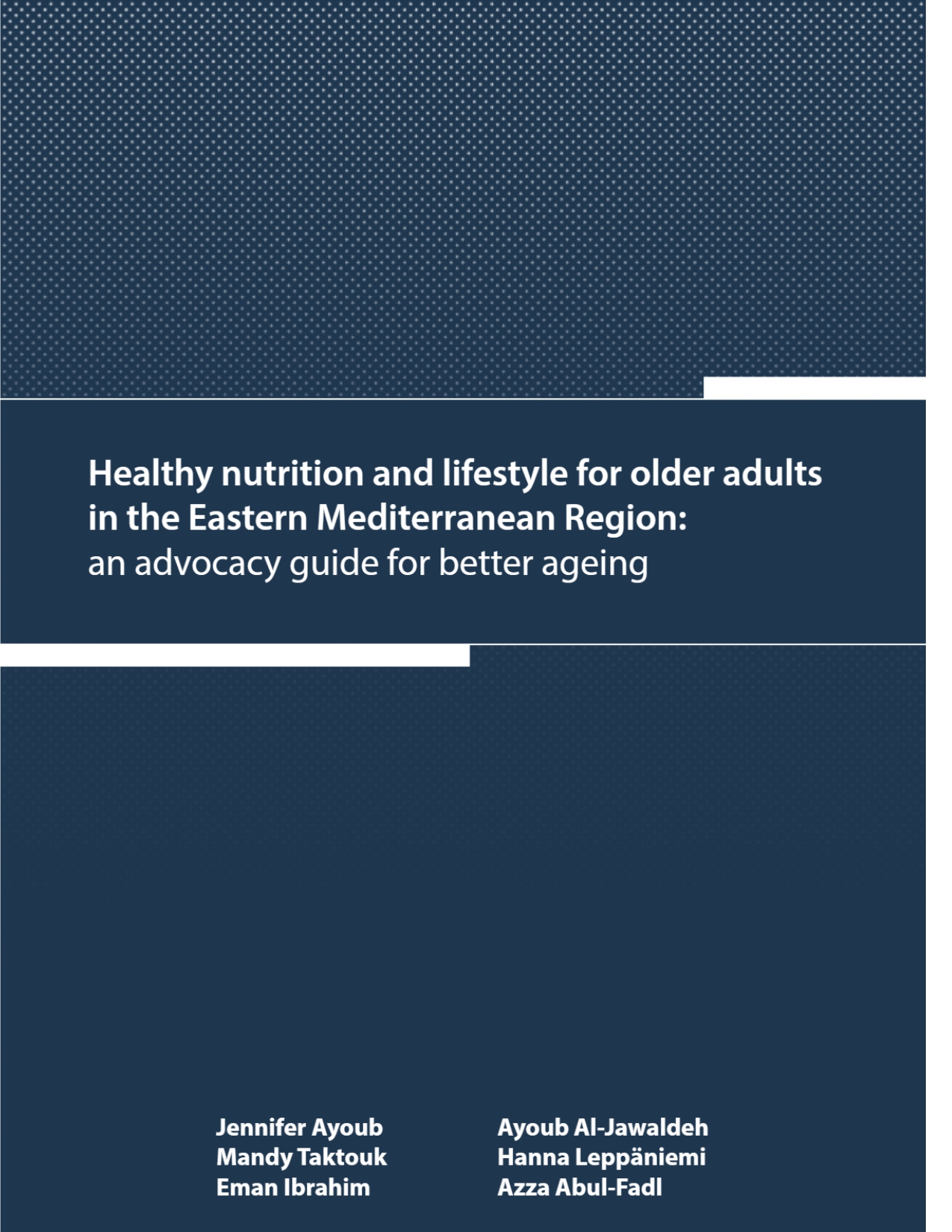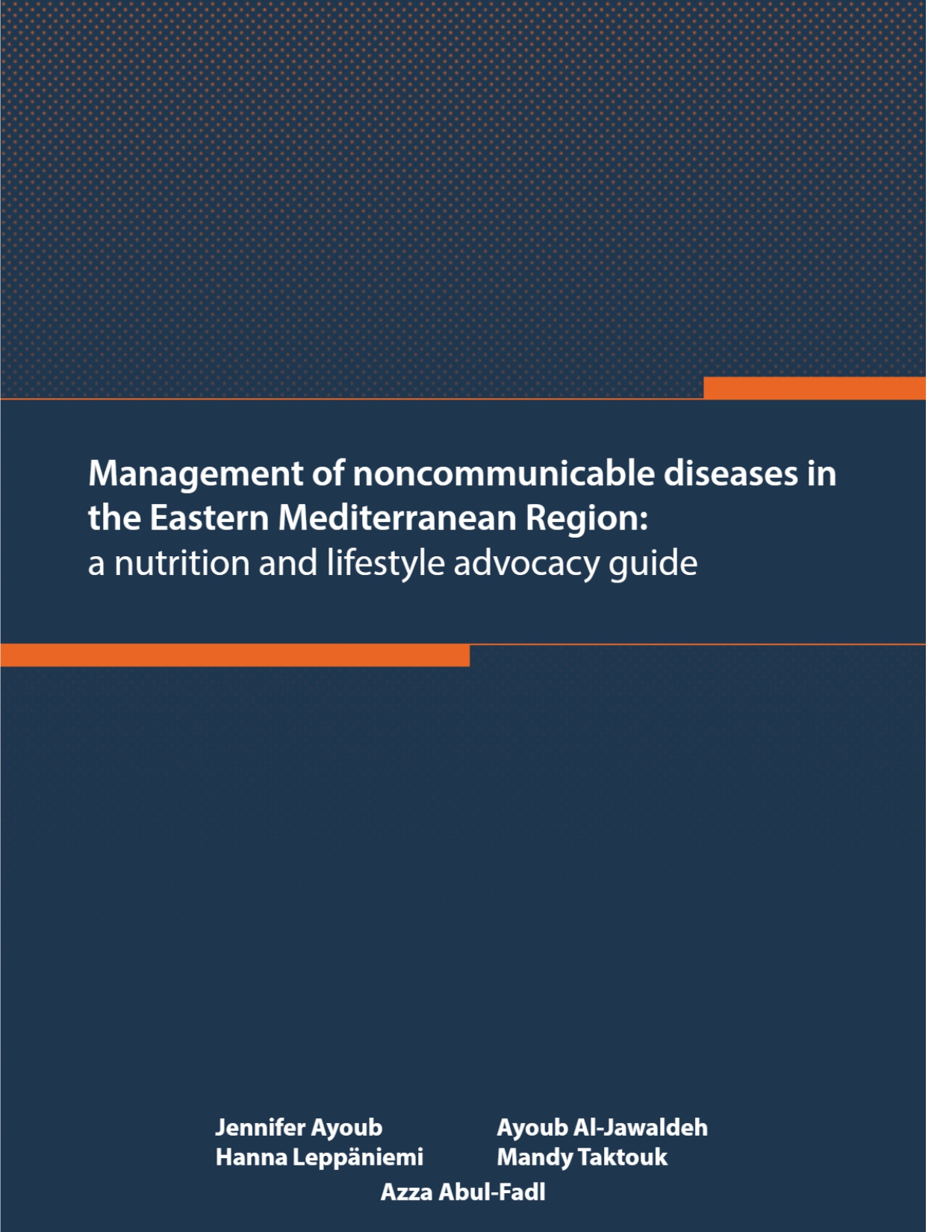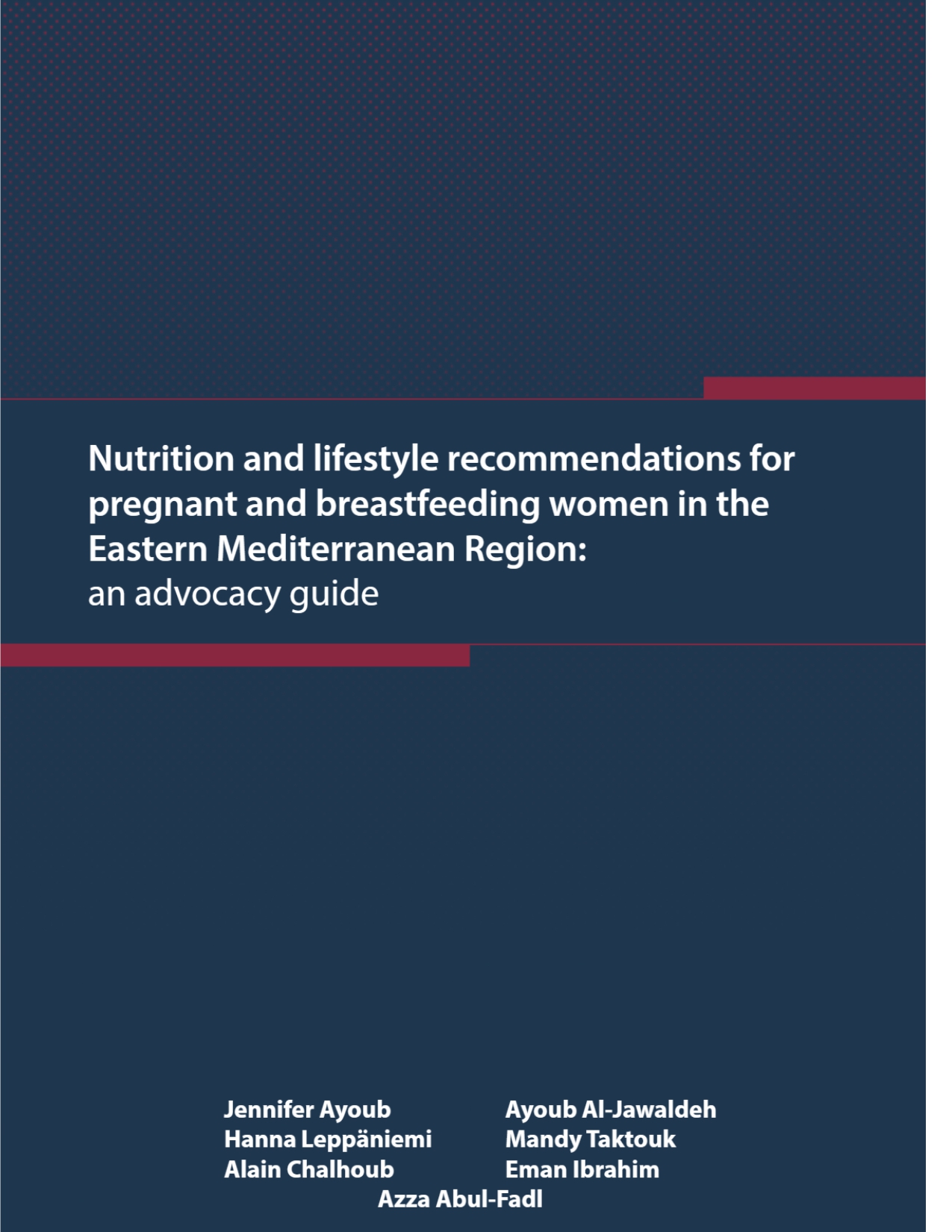
WHO Nutrition Works at WHO EMRO
Publication date: 2024
Nutrition is one of several technical programmes in the Department of Noncommunicable Diseases and Mental Health at the WHO Regional Office for the Eastern Mediterranean. The Nutrition Unit provides advice, as well as technical and programmatic support to all 22 countries and territories of the Eastern Mediterranean Region to help them take action to improve nutrition to support health and well-being for all, at all ages and to achieve food security, end all forms of malnutrition and improve nutrition throughout the life course by 2030.

Advocacy Brief: understanding the role of nutrition for individuals living with genetic disorders
Publication date: 2024
Proper management of genetic disorders involves adequate newborn screening, nutritional assessment, nutritional diagnosis, nutritional intervention and consequently nutritional monitoring and evaluation. This guide sheds light on the different categories of genetic disorders (urea cycle disorders (UCDs), organic acidaemias, carbohydrate disorders, amino-acid disorders and fatty acid-oxidation disorders), as well as their main characteristics, biochemical features and clinical symptoms, complications and medical nutrition therapy and management guidelines. The medical nutrition therapy of genetic disorders aims to address the deficiency or inactivity of enzymes by (1) limiting the amount of available substrate; (2) providing more of the end product; (3) supplementing additional enzymatic cofactors; (4) promoting the elimination of toxic metabolites.

Nutritional management of diabetes: advocacy guide
Publication date: 2024
Proper management of the different types of diabetes involves adequate screening, nutritional assessment, nutritional diagnosis, nutritional intervention and consequently monitoring and evaluation, which are discussed in depth throughout this document. This guide is intended to serve as a resource for policy makers, physicians, healthcare practitioners, parents, family members and caregivers. It also emphasizes the need to have a comprehensive referral system and multidisciplinary care teams to better enhance the management of diabetes in the EMR.

Vitamin D in the Eastern Mediterranean Region: a technical guide
Publication date: 2024
Vitamin D deficiency (VDD) has become a major public health concern, particularly in countries undergoing a rapid nutrition transition with a shift in dietary habits and lifestyle, characterized by high consumption of processed foods, and an indoor lifestyle. VDD has shown implications on nutrition and health, including bone health, myopathy, diabetes, depression, as well as implications during pregnancy. The most vulnerable to VDD are infants, pregnant teenagers and women, older adults, people with limited sun exposure, people with darker skin, people with reduced fat absorption, obese people, people who underwent gastric bypass surgeries and vegans.

Anemia among children and women in the Eastern Mediterranean Region: a technical guide
Publication date: 2024
The management and prevention of anemia should be specific in targeting the underlying nutritional and non-nutritional causes of anemia. This includes following a healthy, nutritious and diversified diet; improving infant feeding practices and promoting exclusive breastfeeding; considering supplementation if necessary; implementing food fortification policies; implementing nutrition education and awareness programs; enforcing food security and ensuring adequate access to a healthy, nutritious and diversified diet, across the population; targeting non-nutritional causes of anemia through specific programs pertinent to malaria, HIV, tuberculosis, soil-transmitted parasitic worms, genetic blood disorders, water, sanitation and hygiene (WASH), environmental and social aspects, delayed cord clamping, birth spacing, and menstrual bleeding and hemorrhage.

Nutrition for individuals with special needs: advocacy guide
Publication date: 2024
This guide is shed light on the most common types of developmental needs including autism disorders, cerebral palsy, fetal alcohol syndrome (FAS), down syndrome, orofacial, prader-willi syndrome (PWS), spina bifida and attention-deficit/hyperactivity disorders (ADHD), as well as their nutrition and health-related problems and management approach es. General recommendations for policy makers, technical staff, and community and family members include empowering the health system, healthcare providers and facilities to cope with the special needs for people; providing social support for the people with special needs, as well as their parents, family members and caregivers; effectively managing NCDs of people with special needs; empower ing individuals with special needs to take control of their health through education and self-manage ment strategies; promoting access to inclusive physical activity programs, nutritious food options, and mental health support services; and regularly monitoring and evaluating the nutritional and health status of the people with special needs.

Nutrition therapy for people living with cancer in the Eastern Mediterranean Region
Publication date: 2024
The guide discusses the most common types of cancer (breast, colorectal, esophageal, gastric, head and neck, hematological, liver, lung, pancreatic and small intestine) by providing a brief overview on their common symptoms and side effects, and adequate dietary intervention.

Advocacy brief: a summary of nutrition and dietary considerations for individuals living with hypertension
Publication date: 2023
Globally, it was estimated that 1.28 billion adults aged 30 to 79 years were living with hypertension, and the majority (two thirds) resided in low- and middle-income countries. In 2019, it was estimated that 38% of adults aged 30-79 years in the Eastern Mediterranean Region (EMR) had hypertension (i.e. more than 104 million people), with more than half of them (51%) not being aware of their con dition. This advocacy brief presents the most recent data on hypertension and its risk factors, as reported by the national World Health Organization (WHO) STEPS database and the WHO global non-communicable diseases (NCD) Data Portal. It also summarizes the recent scientific literature in this condition and some of the implementation considerations for adaptation specific to the Eastern Mediterranean Member States.

Healthy nutrition and lifestyle for older adults in the Eastern Mediterranean Region: an advocacy guide for better ageing
Publication date: 2022
Healthy diet and lifestyle help optimize the overall health and wellbeing of older adults. Prevention of malnutrition is an important element of the WHO’s integrated care for older people guidance. In the EMR, older adults have been an underrepresented target group in nutrition research and advocacy. Therefore, this advocacy guide aims to contribute to narrowing this research gap.

Healthy nutrition and lifestyle recommendations for children under the age of 5 years in the Eastern Mediterranean Region: an advocacy guide
Publication date: 2022
Optimal infant and young child feeding practices are essential for their proper growth and development as they set a foundation for good health and healthy eating patterns throughout life. Every infant and child has the right to good nutrition according to the Convention on the Rights of the Child. Thus, this advocacy guide aims to support capacity building among healthcare professionals and parents of young children and serves as a practical guidance book.

Management of noncommunicable diseases in the Eastern Mediterranean Region: a nutrition and lifestyle advocacy guide
Publication date: 2022
This advocacy guide, developed by WHO EMRO, provides evidence-based recommendations for the management of NCDs through healthy diet and lifestyle choices. It is designed to address the unique regional characteristics of the Eastern Mediterranean Region. The guide is intended for both healthcare professionals working with NCD patients and individuals living with NCDs. The recommendations of this advocacy guide can also serve as general guidance to healthy diet and lifestyle even for individuals without NCDs.

Nutrition and lifestyle recommendations for pregnant and breastfeeding women in the Eastern Mediterranean Region: an advocacy guide
Publication date: 2022
The Global Strategy for Women’s, Children’s and Adolescents’ Health (2016-2030) highlights the importance of investing in the health of pregnant and lactating women for prosperous and sustainable societies.This advocacy guide, tailored for the EMR, mainly targets mothers, mothers-to-be or health care professionals of Obstetrics and Gynaecology. Its main purpose is to equip the reader with updated evidence-based information for optimizing nutrition, diet and lifestyle during preconception, pregnancy and lactation in a user-friendly manner.

Nutrition and lifestyle recommendations for school-aged children and adolescents in the Eastern Mediterranean Region: an advocacy guide
Publication date: 2022
The health and development of children and adolescents is an integral part of the WHO Global Strategy for Women’s, Children’s and Adolescents’ Health (2016–2030). The aim of this advocacy guide is to help meet the need for clear, evidence-based guidelines by serving as a useful tool for healthcare workers, parents or any individual interested to learn more about healthy nutrition and lifestyle for school-aged children and adolescents.




